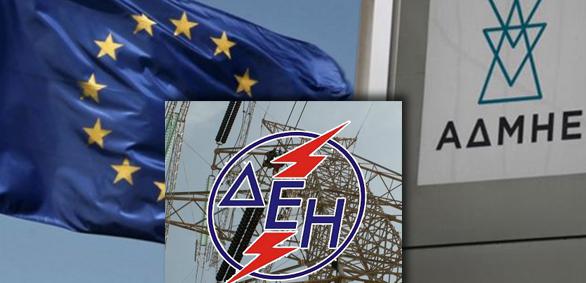The country’s lenders are insisting that the part-privatization of PPC and sale of IPTO, the power grid operator, be included in the final agreement leading to a new bailout agreement for Greece.
The inclusion of these two energy-sector sales as additional measures being demanded by the lenders was confirmed yesterday by a Greek official involved in the negotiations.
The official noted that “we continue to not be willing to discuss either matter”, adding further obstacles to the effort for an agreement. At the other end, the European Commission refused to offer any comments.
The dispute over these energy-sector matters adds to the widely publicized stand-off on VAT issues and pensions.
Among the lenders, the European Commission is at the helm of the energy-related demands, making clear that PPC’s part-privatization and sale of IPTO would open up the country’s electricity market in deeds and not just words, while also signifying Greek compliance with EU regulations and energy unification plans.
Countering the lender demands, Greek officials believe the Greek electricity market is free and operating under market competition conditions.
Sources in Brussels noted that both sides are adamant in their positions concerning the energy-sector matters, as is also the case with the VAT rate and pension issues, making any predictions impossible at this stage. The only sure thing at present is that lenders are not satisfied with Greece’s energy package of proposals.
This boils down to meaning that no bailout deal can be reached between Greece and its lenders without formal commitment for an end to the prevailing monopoly in the electricity market, through PPC’s part-privatization, and the natural gas market’s liberalization.
Greece, along with Bulgaria, is considered Europe’s last bastion insisting with monopolies in the energy sector.
Judging by the latest developments, a warning expressed several months ago by the EU’s competition commissioner Margrethe Vestager for Athens to adjust to EU regulations by reducing the dominance of enterprises enjoying monopolies was foreboding to say the least, regardless of whether many officials here paid no attention, or made out as if they had not paid any attention.





